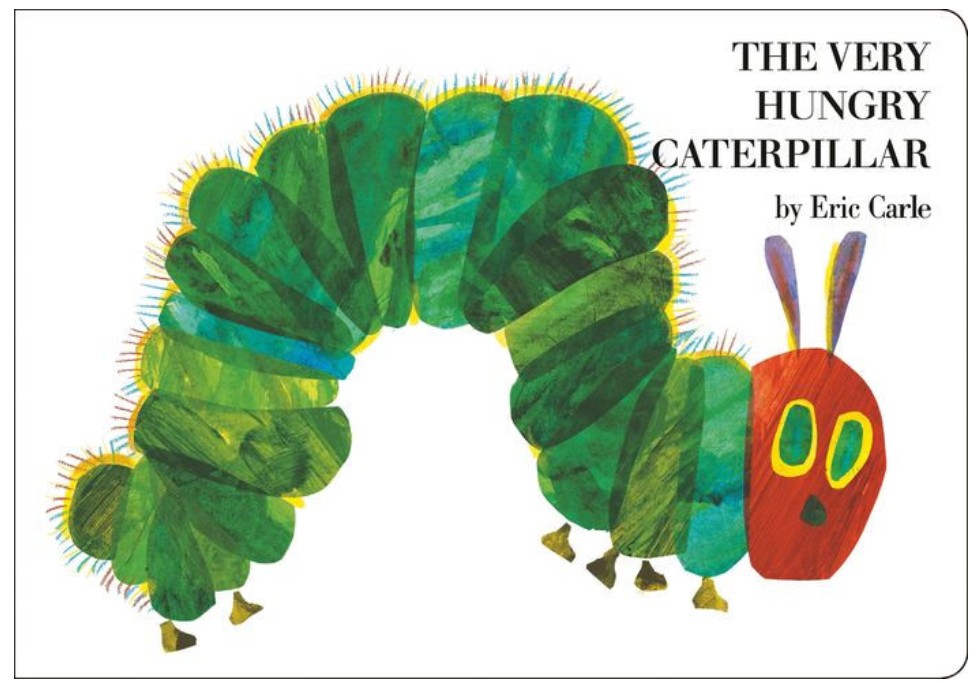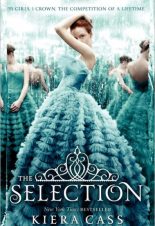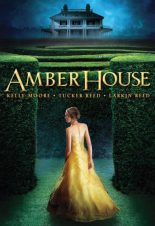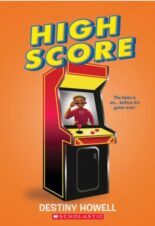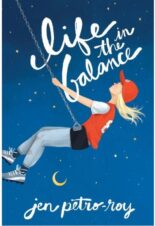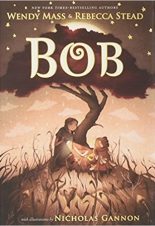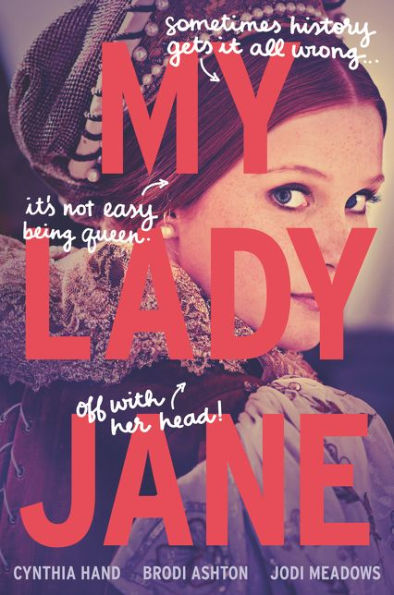
Buy This Book
“Dearest Jane, sorry I made you marry a horse. Your father-in-law is trying to kill me. Send help,” Edward. —My Lady Jane
My Lady Jane
by Cynthia Hand, Brodi Ashton, Jodi Meadows
AR Test, Strong Female
13+
Score
6.3
512
According to the history books, Lady Jane Grey became the Queen of England for nine days before quite literally losing her head. But according to authors Cynthia Hand, Brodi Ashton, and Jodi Meadows, there is definitely more to the story.
Edward hasn’t done very much in his lifetime. Sure, he’s been the King of England since he was a child, but he’s never even kissed a girl—and now he’s caught a deadly illness known as “the affliction,” which means he’ll be dead within a year. Unable to trust either of his sisters to take the throne, Edward decides to rewrite the line of succession, leaving the throne to the future male heir of his cousin, Lady Jane Grey.
Sixteen-year-old Jane would love nothing more than to escape from her life. Her nagging mother and a never-ending string of unfortunate engagements are positively boring compared to the adventures she reads about in her favorite books. She might want her life to be more exciting, but getting married to a complete and total stranger was not what she had in mind.
The stranger in question, Gifford Dudley (please call him G), isn’t too thrilled to be getting married either. Every morning G transforms into a horse and stays that way until sunset. He’s gotten used to the fact that he’s cursed, but he’s not totally sure how to explain that to his pretty new wife.
My Lady Jane is a fascinating alternate history adventure; it is set in a world where people called Eðians have the ability to transform themselves into animals. Despite being based on 16th-century British nobility, Edward, Jane, and Gifford all read as super-relatable to a modern teenager. Stubborn, bookish Jane and sweet, clueless Gifford certainly don’t know how to make a relationship work, let alone run a kingdom. Edward might have been the King of England, but that can’t protect him from being totally awkward around the girl that he likes.
Serious history buffs might not appreciate the extreme liberties that the authors take with the timeline, but the story will definitely appeal to open-minded historical fantasy fans and anyone looking for a good laugh. The story takes readers on a rollicking adventure across England, complete with attempted regicide, a giant bear, and lots of romance. Jane and Gifford’s slow, often awkward progression from unfriendly strangers to loving partners is equal parts endearing and frustrating. Readers will surely be rooting for the protagonists as they learn that sometimes your heart’s desire can be found in the most unexpected places.
Sexual Content
- According to rumor, King Henry’s second wife was an Eðian, “who every so often transformed into a black cat so she could slip down the castle stairs into the court minstrel’s bed.”
- Edward is described as having “the correct genitalia” to rule England.
- Edward thinks that if he had been born a commoner, “at least he would have had an opportunity to kiss a girl.”
- Edward thinks that producing an heir would be fun because it would “definitely involve kissing with tongues.”
- Edward is reluctant to approve of Jane’s marriage because “in the back of his mind he’d been holding on to the idea that perhaps someday he’d be the one to marry Jane. This was back when it was slightly less frowned upon to marry your cousin.”
- Edward’s advisor says, “Life would be a lot simpler if I only had to attend to my wife in the hours between dusk and dawn.”
- Gifford’s father tells Edward that Gifford is “a little too easy on the eye for his own good, I’m afraid. He tends to attract…attention from the ladies.”
- Gifford’s brother mistakes Jane for one of the women he thinks Gifford has been sleeping with. This causes Jane to panic about her wedding because “Her husband to be was a philanderer. A smooth operator. A debaucher. A rake. A frisker.”
- Gifford lets his parents believe that he is “carousing with the ladies” so they don’t discover that he’s been spending his time writing and performing poetry.
- Gifford’s father says that Jane is “as far as can be anticipated” fertile.
- Jane’s mother explains sex using the euphemism “a very special hug.” She says that although the hug might be unpleasant, “it’s part of the wedding night, and part of your duty as a wife.”
- At the end of their wedding ceremony, Jane and Gifford kiss. “The kiss came quickly. It wasn’t anything more than a touch of his lips to hers, so light it might not have happened at all.”
- Gifford says that “not one in twenty men” would find Jane unseemly, and that “the supple pout of her lips” could inspire poetry.
- Gifford, annoyed at how concerned everyone seems to be with the consummation of their marriage, thinks, “at least the nobility of England no longer required live witnesses to the event.”
- Edward and Jane seem so close that Gifford thinks they might be “kissing cousins.”
- Edward says that he saw a “flicker of surprise and definite male interest” in Gifford’s eyes when he first sees Jane at the wedding.
- As Edward watches Gifford and Jane leave their wedding feast, he thinks, “I am never going to consummate anything. I’m going to die a virgin.”
- Jane gets angry at Gifford and calls him a “drunken lothario.”
- After bonding during their honeymoon, Jane and Gifford almost kiss. As they stand alone in the parlor, Jane realizes they’ve gotten quite close and wonders, “Would he kiss her? Part of her hoped he would. A big part maybe. Multiple parts: her butterfly-filled stomach, her thudding heart, and her lips, which remembered the gentle breath of a kiss during their wedding.”
- When Edward transforms back into a human, he finds himself naked and alone in a strange village, where a woman accuses him of being a pervert. She says, “This was a decent village, you know, before your kind came around spoiling it. Thieves and murderers, the lot of you. Like those dogs that watch me get dressed through the window and then run away. Perverts!”
- Gracie is an Eðian who can turn into a fox, which is ironic considering how attractive Edward finds her. The narrators take the opportunity to tell the reader that “the term fox, used to convey the attractiveness of a woman, was not invented until Jimi Hendrix sang ‘Foxy Lady’ in 1967.”
- Edward wants to kiss Gracie but can’t because “he wanted her to want him to kiss her.”
- Gifford and Jane share a single set of clothing while they are on the run from Mary’s soldiers. Jane describes the situation as an “awkward (and scandalous, though they were married, so did it really count as scandalous?) clothing situation.”
- Jane reflects on her growing feelings for Gifford. “He teased her, but never with an intent to hurt her feelings. He often held her hand. He called her pet names like ‘my darling’ and ‘my sweet.’ Those things shouldn’t have had such an effect on her, but they did. Being with him made her breath come quicker and her heart pound and her palms get all clammy. It made her wish she could remain human all the time so that they could stay together.”
- The King of France tells Edward to find a wife and produce some male heirs as soon as possible. The King says, “I have three sons, myself, and a number of bastards. It’s very comforting for me to know that I will never find myself in your predicament. My bloodline is secure.”
- Edward finally asks Gracie to kiss him by saying, “I’ve never kissed a girl before and I want it to be you. Will you?” She considers it, but ultimately she isn’t able to get past the difference in their stations and runs away.
- On the morning of a battle, Jane finally kisses Gifford for real. As they were saying goodbye, Gifford “kissed her. Softly at first, but then she pulled him close and pressed her lips harder to his. And that was it. She could feel him giving in by the way his body pressed against hers, the way one of his hands cupped her cheek, and the way the other slid down her arm. She could feel his desire to stay human in the fevered, desperate way he kissed her.” The description lasts about half a page.
- Gifford reflects on the kiss. “How had a girl like Jane kissed him like that? With her whole heart and her whole body? She’d probably read a dozen books with titles like The Kiss: It’s Not Just About the Lips. The way Jane kissed, it was like an art. She kissed by the book.”
- After breaking into the castle, Jane and Gifford are reunited. They finally say “I love you” to each other, and Gifford is able to stay a human. “The two lovers embraced, while Edward and your narrators turned their heads to give the lovebirds their moment of blessed union.”
- After the battle, Edward can’t stop thinking about Gracie. “Because he wanted to tell her that he’d stepped down from the throne and see that surprised look on her face. And (let’s be honest) he still very much wanted to kiss her. He thought about it embarrassingly often.”
- Edward tells Gracie that he gave up the throne, and they finally kiss. “Edward closed the space between them in two strides. He didn’t really know what he was doing, only that he had to do something right now or he’d explode. Her warm heart-shaped face was in his hands, his fingers caught in her curls. She opened her mouth to say something and he kissed her.” The scene lasts about a page.
- At Jane and Gifford’s second wedding, “Jane didn’t wait for instructions to kiss. She stood on her toes and wrapped her arms around her husband’s shoulders and kissed him as the guest clapped and clapped.”
- After the wedding, Jane and Gifford have a conversation that devolves into kissing. “Lips met lips, soft and questioning at first, then suddenly desperate and wanting. And at their first wedding, their wedding-night chamber seemed full of the echoes of strangers eager to have their say, tonight, they were very much alone.” The narrators cut in before it gets too steamy but do assure the readers that “they totally consummated.” The scene lasts for about a page and a half.
Violence
- At the beginning of the book, the narrators summarize the historical version of what happened to Lady Jane Grey: “She was queen for nine days. Then she quite literally lost her head.”
- There is a group called the Verities who believe that all Eðians are an abomination, “And because Verities were largely in charge of everything, Eðians were persecuted and hunted until most of them died out or went deep into hiding.”
- When King Henry discovers his own ability to turn into a lion, he decrees that Eðians aren’t so bad after all. “The head of the Verity Church was not pleased with King Henry’s decision, but every time Rome sent a missive denouncing the decree, the Lion King ate the messenger. Hence the phrase don’t eat the messenger.”
- Edward says one of the things he wants to do before he dies is to beat the weapons master in a sword fight because “[he] was the only person [Edward] knew who forgot to let him win.”
- Because of rumors of his second wife’s infidelity, “the king had her head chopped off.” It is also briefly mentioned that his fifth wife was beheaded too.
- Edward says the only time he’s seen his sister Mary enjoying herself was “when some traitor was beheaded or some poor Eðian got burned at the stake.”
- An Eðian group called the Pack has been “raiding and pillaging from Verity churches and monasteries.”
- While traveling, Jane and Gifford come upon a group of villagers being attacked by wolves. “A handful of people brandished sticks and pitchforks and various other farming tools, attempting to block the path of the Pack of wolves.” Some of the villagers have been injured and Jane wants to help them, but Gifford stops her. The description of the event lasts about three pages.
- When his nurse tries to feed him poisoned food, Edward imagines her “less-than-slender form stretched on the rack while he dropped poisoned berries in her mouth.”
- Edward’s sister, Mary, tells him that when she becomes queen, “We will root out this Eðian infestation, starting with that horrible Pack that everyone’s talking about. I’ll see them all burn.”
- After Edward refuses to eat his poisoned food, he is attacked by his would-be murderers. “Before he was even fully awake, rough hands were upon him, forcing his arms up painfully. Hooded men loomed all around his bed. Someone had latched one of his wrists to the bedpost.” The description of the scene lasts about three pages.
- As a bird, Edward kills and eats a mouse. “Edward-the-bird struck the mouse with tremendous force and snatched it from the face of the earth. The poor thing gave a rather awful shriek, which was understandable, and then went quiet.”
- Edward meets Gracie, a Scottish Eðian and thief who threatens him with a knife. “If he told her who he really was chances were that a) she wouldn’t believe him, and she’d cut his throat, or b) she’d believe him, and because he was the ruler of England and she was Scottish and this was the year 1553, she’d get even more pleasure out of cutting his throat.”
- Gracie and Edward get into a fight with a farmer. “The bird that was Edward descended on him, talons clawing at the man’s face. The farmer screamed and released his sword. The girl took this opportunity to knee the farmer in the acorns. He dropped to the floor. She kicked him.”
- Mary and her army show up to take the throne away from Jane. Jane and Gifford refuse to cooperate with her and are ultimately held captive. “[Jane] tried to wriggle away and Gifford snapped and kicked, but then one of the men held a sword to Gifford’s long neck. Someone else pressed a knife to Jane’s throat.”
- When Gifford transforms into a horse, Mary tells Jane, “In the morning, he will be burned at the stake.” Jane can swear allegiance to Mary and the Verities, or she will be beheaded too.
- When Gifford and Jane attempt to escape the castle, they are confronted by several guards. “The first guard [Gifford] dispatched quickly in a move that Jane would probably describe as elegant swordsmanship, but he knew was really the result of the sword slipping from his sweaty hand. As he lunged to retrieve it before it hit the goring, he plunged he sword through the heart of a guard who was just rounding the corner.”
- Gracie bests Edward in a sparring match. Gracie “bashed him in the ribs. If it’d been a real sword in her hand, instead of half of a broken broomstick, he would’ve been done for.” The scene lasts about four pages.
- Gracie tells Edward about how her family was killed by British soldiers because they were Eðians. “That night I woke to our cottage burning. We were all inside, my ma and dad and brothers—I had two brothers—and they’d blocked the door from the outside, boarded the windows too.”
- Edward and Gracie come very close to kissing, but they are interrupted by his grandmother. “At that moment we should confess that Edward briefly considered murdering his dear sweet grandmother. And he might have gotten away with it, too, on account of the rest of the world thinking the old lady was already dead.”
- Gifford, Jane, and Pet get into an altercation with the Pack and Jane gets injured. “All at once [Gifford] became aware of the blood soaking the front of his shirt and how unusually quiet she was. Jane was never quiet. She was hurt.” The description of the fight lasts about three pages.
- In order to get the Pack to help Edward take back his throne, Edward and Gifford must kill the Great White Bear of Rhyl. When the bear attacks them, Gifford tries to play dead. “The bear sniffed G’s leg. G tried to make his leg look less like food. The bear pushed G’s shoulder and pushed again as though trying to turn him over. G wasn’t sure if complying would make him seem more or less dead.” Ultimately Edward is able to kill the bear. The description of the fight lasts four pages.
- Edward is concerned about meeting with Mary Queen of Scotts because of the bad end of their engagement. “When King Henry received word that Mary’s regents had accepted another offer of marriage, this one from the King of France, pairing her with the French dauphin, Francis, King Henry had eaten the messenger immediately and remained a roaring lion for days. And then he’d invaded Scotland.”
- During their siege on the castle, Jane, Edward, and Gifford run into some guards who want to kill them. “The guard on the right re-raised his sword and took a deep breath as if to speak, but he didn’t get a sound out before a loud bang rang out and he dropped like a stone. Jane stood behind the guard, her frying pan raised to where the man’s head had been.” The conflict is described over three pages.
- As Gifford, Edward, and Jane attempt to break into the castle, Gifford’s father and brother confront them. Gifford “looked at his father’s outstretched hand and it made him sick that he shared the same blood as this man… With a flick of his sword, he cut a gash in Lord Dudley’s palm.” The confrontation lasts about three pages.
- Gracie tells Edward that she’s the new leader of the Pack because the old leader has died. “He took an arrow to the chest in the first ten minutes of the siege.”
Drugs and Alcohol
- At the wedding feast, Gifford gets very drunk because he’s too nervous to tell Jane about his horse curse. “Every time G thought about how to break the news to her, he gulped down a cup of ale. And he thought about it a lot. Every time he looked at his new bride. And he looked at her a lot.”
- When he turns back into a human, Gifford goes to a tavern attached to a brothel to steal some clothes because “There it was easy to grab clothes strewn about, the owners of which would be too sloshed to care.”
Language
- When he learns he’s going to die from the affliction, Edward says, “bollocks,” twice.
- Damn is used once. Gifford tells Jane she should abdicate, “Well tell them thank you so much for the very kind offer of running the country, but no thank you. I have no desire to honor my cousin, the king’s, wishes. Now where are my damn books?”
- During a sparring match, Gracie and Edward trade insults, including “Lilly-livered scutt” and “beef-witted varlet.”
- Edward calls Mary a “poisonous bunch-backed toad.”
Supernatural
- The book is set in an alternate world where certain people, known as Eðians, have the ability to turn into animals. “Certain members of the general public could turn themselves into cats, which greatly increased the country’s tuna fish population, but also cut down on England’s rat population. (Then again, other individuals could turn into rats, so nobody really noticed.)”
- King Henry VIII was an Eðian, who “during a fit of rage transformed into a great lion and devoured the court jester.”
- There’s a rumor that Jane’s mother is an Eðian, which caused Jane and Edward to try to uncover their own Eðian forms. “Jane had read in a book that Eðians often manifested into their animal forms when they were upset. They’d cursed each other and slapped each other’s faces, and Jane had even gone so far as to throw a stone at Edward, which actually did rile him, but they had remained stubbornly humanly human throughout the whole ordeal.”
- Edward’s dog, Pet, reveals herself to be an undercover Eðian. “Pet stood up, then lifted her front paws to the edge of Edward’s bed, her neck thrown back like she was stretching. There was a flash of light, as painful as if Edward had accidentally glanced into the sun, and he closed his eyes. When he opened them again there was a naked girl standing at the foot of his bed.”
- Jane is locked up in a tower, hopelessly anticipating her upcoming execution, when she finally unlocks her Eðian powers and turns into a ferret. “A brilliant white light flared about her, making her blink back stars. When she could see again, everything was different. The room was bigger, for one, and she felt…funny. Shorter, which was saying something, but oddly long.”
- Edward’s grandmother tries to teach Jane, Gifford, and Edward how to use their Eðian powers. She tells them that the secret to changing into your animal form is to know your heart’s desire. Edward’s grandmother says, “If, in the moment you want to change, you do not know why you want to become a bird or ferret or horse or human, then you will stay exactly as you are.”
- When Edward shows up to take his throne back, Mary gets so angry that she turns into a mule. “Then Mary let out a bellow of rage and barreled toward Bess with outstretched hands, as if she would choke the life from her sister. But before she could reach Bess, a light flashed. The onlookers gave a collective gasp. Where Mary had been standing, there was now a chubby mule.”
Spiritual Content
- Edward believes he was “designed by God” to be the king of England.
- Jane’s mother says that her Eðian form is unnatural, but Jane disagrees. “In one of my books about Eðians, the author said that long ago, in ancient times, all people were able to change into their animal form. Everyone was Eðian. It was considered their true nature. It was considered divine.”
- Edward feels bad about having bad-mouthed women, thinking, “He’d only said what Bess had told him to say, and besides, it was true, wasn’t it? Women were the weaker sex were they not? Wasn’t that even written in the Holy Book?”
- While Jane is breaking into the castle, Gifford says several prayers. “He closed his eyes and sent a quick prayer to the heavens that he would see her again. He prayed Edward would keep her from harm. He prayed if Edward failed, she would turn into a ferret and hide. He prayed if she was discovered she would slip from the soldier’s clumsy fingers. And that if she couldn’t escape, they would kill her quickly.”
by Evalyn Harper
“Dearest Jane, sorry I made you marry a horse. Your father-in-law is trying to kill me. Send help,” Edward. —My Lady Jane
Latest Reviews

Medusa

Simone Biles Vs. Nadia Comaneci: Who Would Win?
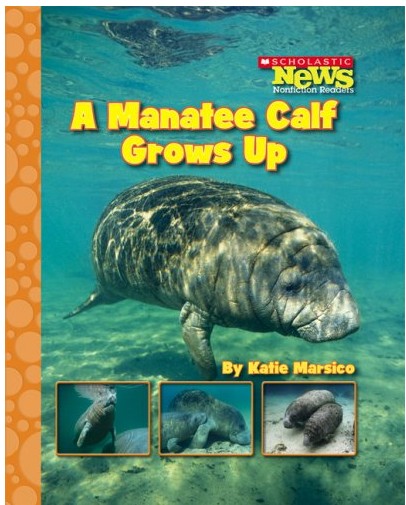
A Manatee Calf Grows Up
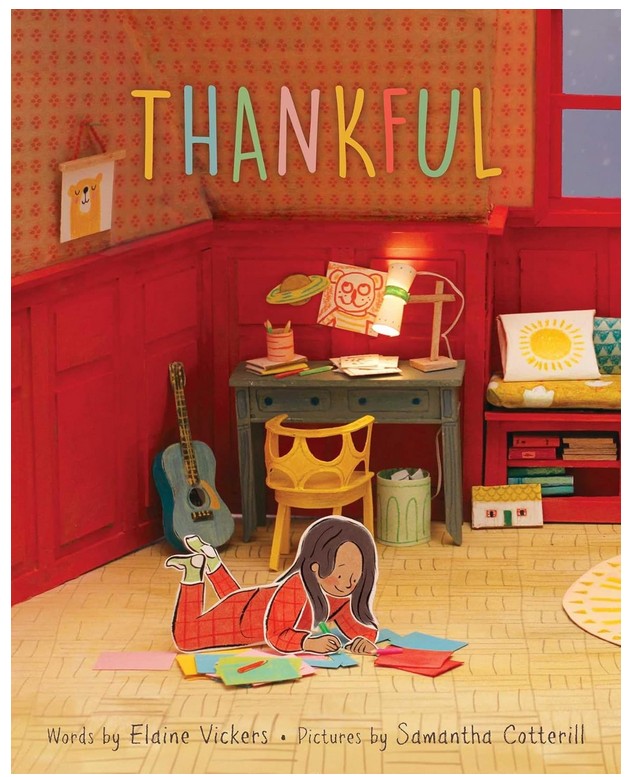
Thankful
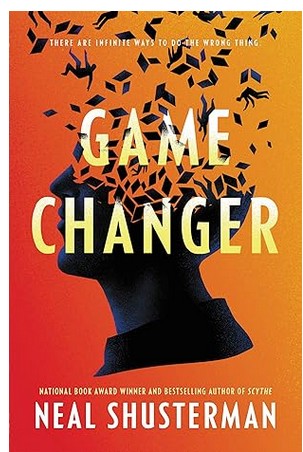
Game Changer

Swimming with Spies
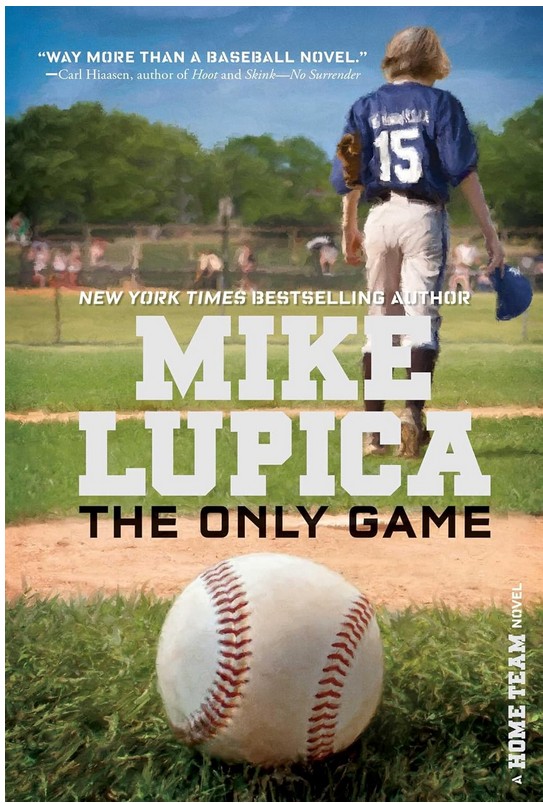
The Only Game

Wildfire Rescue
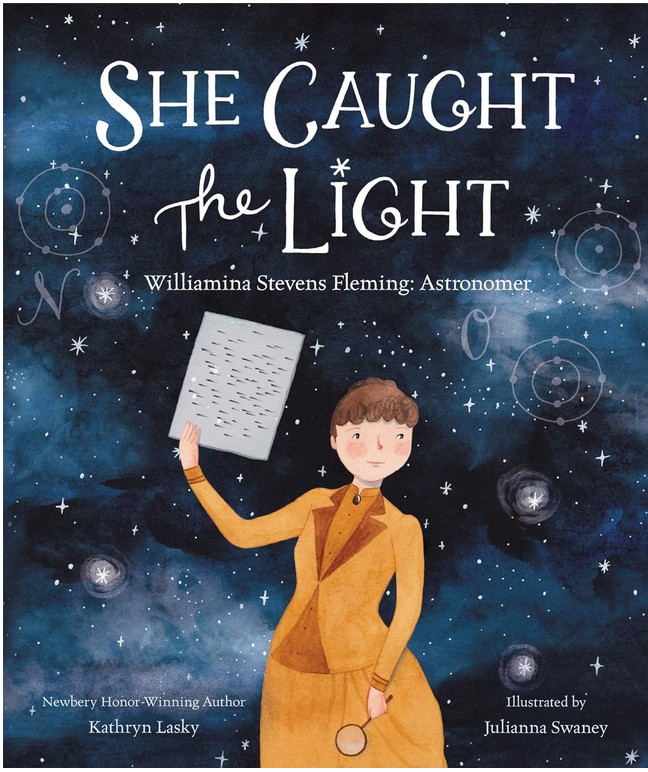
She Caught the Light: Williamina Stevens Fleming: Astronomer
